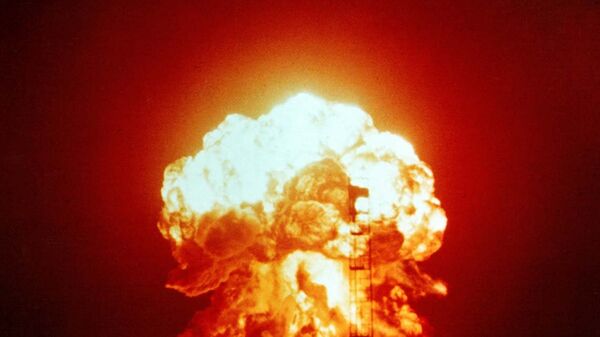The earthquake was small, according to media reports, but large enough to cause entire buildings in Russia and China to shake, the Daily Mail reported. Previous tests have caused earthquakes in the area surrounding North Korea's only known nuclear testing location.
The quake registered a magnitude of 2.9, according to the US Geological Survey, a monitoring agency that said the quake's epicenter was about 14 miles from Sungjibaegam.
The Diplomat's Ankit Panda was skeptical that a test had occurred. "Almost certainly not a nuke test," Panda tweeted Thursday.
The most recent test at Punggyre-ri on September 3 was Pyongyang's sixth ever, which the country's leadership maintained was a hydrogen bomb test.
North Korea has traditionally tested its nuclear explosions underground. "If the mountain collapses" where the weapons have been tested "and the hole is exposed, it will let out many bad things," Wang Naiyan, a Chinese nuclear weapon scientist said following the September test.
Just one more nuclear test would be enough to make the mountain cave in on itself, researchers told the South China Morning Post at the time. "The North Korean government should stop the tests as they pose a huge threat not only to North Korea but to other countries," said Wang.
The September explosion was North Korea's highest-yielding nuclear test ever, Hans Kristensen, director at the Federation of American Scientists' Nuclear Information Project told Loud & Clear on Radio Sputnik.
"The ranges I hear are from 100 to 250 kiloton," Kristensen told Loud & Clear host Brian Becker. "That's a significant increase from the 10 to 20 kiloton" blast detected in prior tests, the expert observed.



